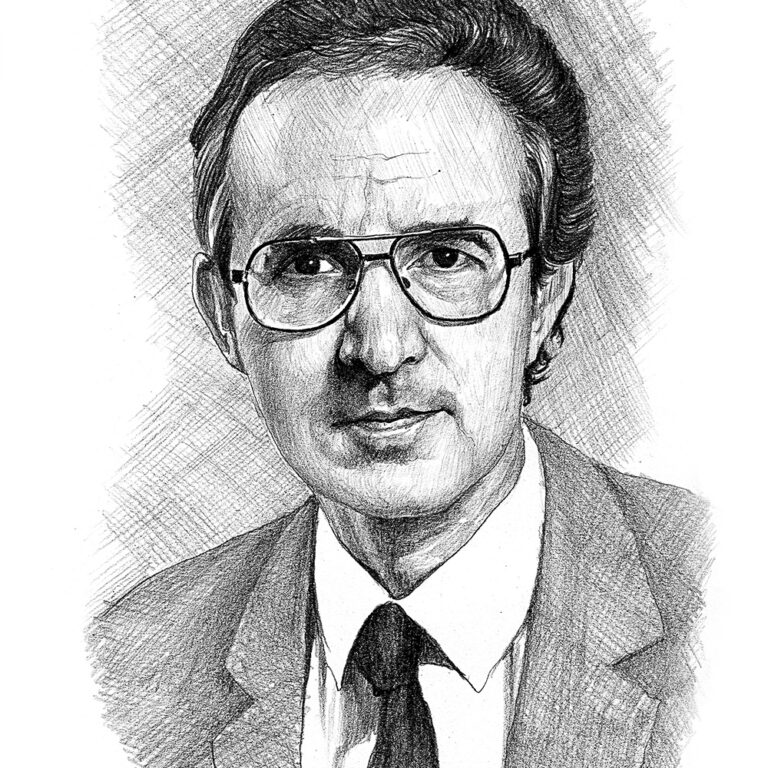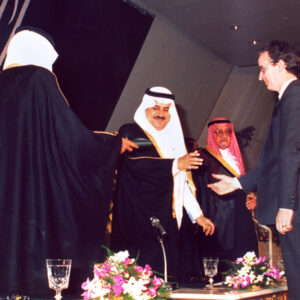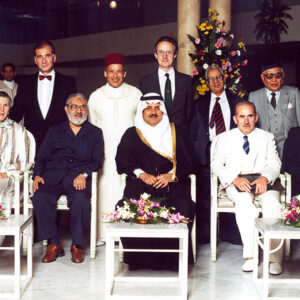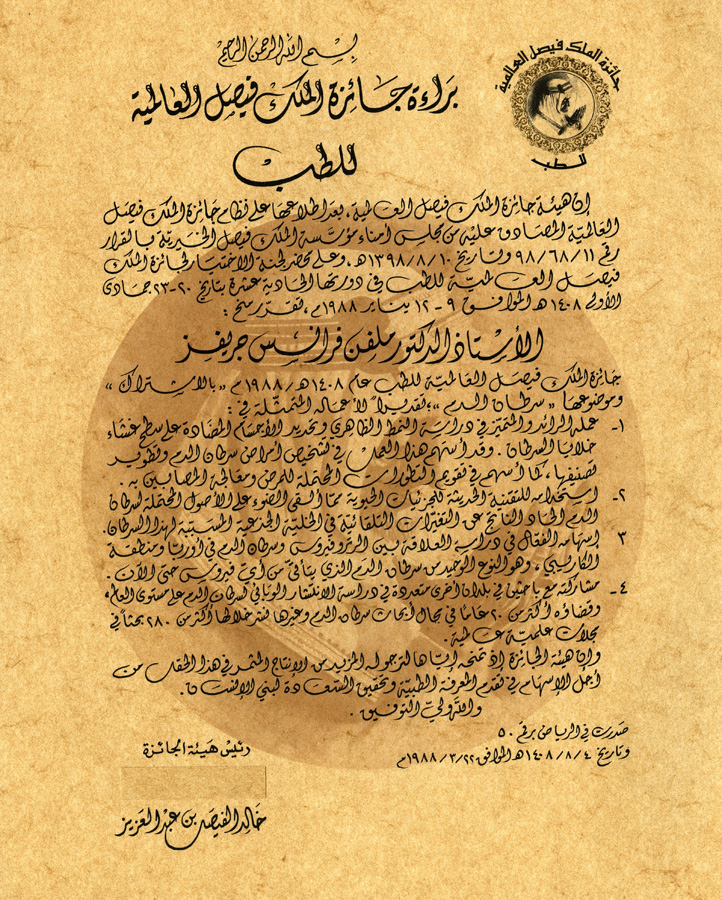

Professor Melvin F. Greaves
King Faisal Prize in Medicine 1988 Laureate
Topic: "Leukemia "
We can look forward with optimism to the next decade during which a combined attack by molecular, immunological, epidemiological, and clinical techniques will enable us to control these once lethal forms of cancer

Melvyn Greaves received his B.Sc. in Zoology in 1964 and a Ph.D. in Immunology in 1968 from the Faculty of Medicine at University College London. He spent a one-year fellowship training with the Immunology Group at the Department of Bacteriology in Karolinska Institute in Stockholm, Sweden, then served as a Research Scientist at the Immunology Division of the National Institute for Medical Research at Mill Hill (1969-1972) before joining the Tumor Immunology Unit of the Department of Zoology at University College London (1972-1976).
Professor Greaves became Head of the Immunology Laboratory from 1976 – 1984, then the Director of the Leukemia Research Fund Center at the Institute of Cancer Research at University College London in 1984. He is currently a Professor of Cell Biology and Chairman of the Haemato-Oncology Section at the Institute of Cancer Research. Earlier in his career, Professor Greaves introduced new methods for the biological classification of leukaemias that led to insights into the cellular origins of disease and more specific allocation of treatment. His subsequent work on the molecular genetics of childhood leukaemias uncovered the pre-natal origin of this disease and shed light on its possible causes. His research paved the way for important advances in the diagnosis and prognosis of leukemias and for the design of novel forms of treatment in individual patients.
Professor Greaves’ contributions to research in leukemia appeared in numerous publications and a long list of honorary and invited lectures, and have earned him worldwide recognition. He received the Paul Martini Prize from Gottingen University in Germany, the Peter Debye Prize from the University of Maastricht in Holland. He is an Honorary Member of the Royal College of Physicians (London) and a Member of the European Molecular Biology Organization. He also holds a Personal Chair of Cell Biology at London University. Professor Greaves has a wide range of interest in biology, cancer, and medicine and has authored numerous scientific publications and several books including: T and B Lymphocytes: Their Origins, Properties and Roles in Immune Responses; Cellular Recognition; and Atlas of Blood Cells: Function and Pathology. He is also the editor of several books on Leukemia.
This biography was written in the year the prize was awarded.
-
- He held several positions including:
- Chairman of the Haemato-Oncology Unit in 2004.
- Founder and Director of the Center for Evolution and Cancer at the ICR in 2014.
- Gordon Bloom Distinguished Visiting Professor at Harvard University Medical School in Boston, MA, USA.
- He received many awards and honors including:
- Gold Medal of the British Society for Hematology in 1999.
- José Carreras Award in 2001.
- Cancer Research UK Lifetime Achievement Award in 2017.
- Royal Medal from the Royal Society in 2017.
- Knighthood in 2019.
- He published many books including:
- He held several positions including:
- Cancer: The Evolutionary Legacy (Oxford University Press), (2000).
-
- White Blood: Personal Journeys with Childhood Leukemia (World Scientific Publishing), (2008).



